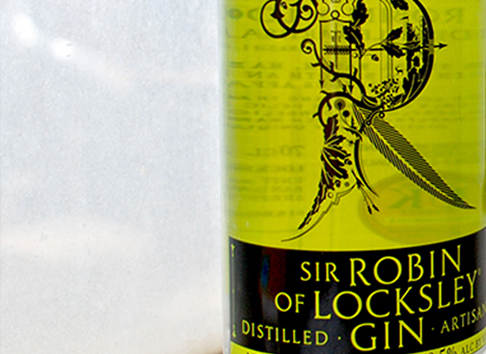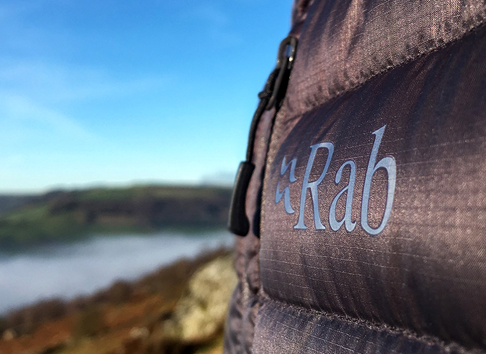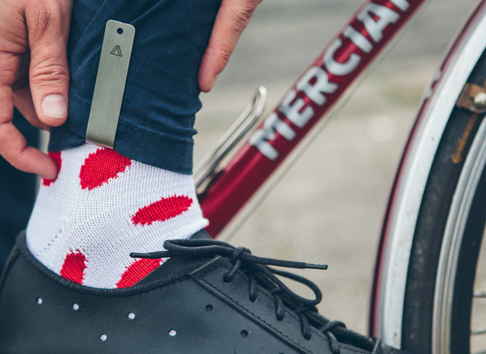Andy Mackay
Sax, God & Rock’n Roll
We talk to Andy Mackay about Roxy Music, theology & his first solo album in 20 years
Photography by Andy Barnham for Riddle magazine
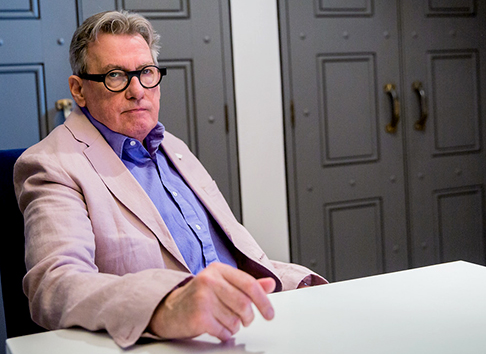
Roxy Music were one of the most avant-garde and influential bands of our time. Andy Mackay’s unique saxophone style cut a distinctive, crisp element through their songs and he co-wrote some of their greatest hits including “Love is the Drug”.
Andy Mackay’s new album 3 Psalmsis his first real solo work for over 20 years. Started as an experimental project in the mid 90’s, it draws upon influences through Andy’s lifetime in music. His classical training, synthesizers and electronica, rock and roll and even his time as a chorister when he was a boy. His distinctive saxophone weaves it together.
It’s a tremendous piece of work. Whether you choose to spend your Sunday morning in church or at home with a fry-up, this album makes a wonderfully stirring and uplifting soundtrack to your day.
The story of its creation over more than a couple of decades has seen some twists and turns, these could be shear chance or possibly involved some divine intervention? We asked Andy about how it all happened.
SC: The Psalms project has been a part of your life for over 20 years, what made you decide to complete and record it now?
AM: We finished the last Roxy tour in Australia in 2011. Bryan was off doing his own thing and I said to myself the Roxy thing is off the cards now.
No one ever says never, but I can’t see us doing another Roxy tour.
So I thought I’ve now got time to finish the Psalms properly. I managed to wangle an advance from my publishers BMG and managed to finish it off over the last two and a half to three years. Ray Russell a session guitarist I’ve worked with before helped. He’s a brilliant arranger, a lovely guy and a fantastic guitarist. Phil Manzanera, former Roxy Music lead guitarist and record producer and Colin Good, Roxy’s keyboard MD were also a great help. We went to Prague to record with the Czech National Philharmonic Orchestrawho were fantastic. We booked 6 hours with them and had it all done in 3 and a bit. Then finally we mixed it in Dean Street studios, Soho, a wonderful old studio.
We booked the date, 26thNovember for a concert of the 3 Psalmsat the South Bank Center to give us a spur. We had to get physical copies out by then and it has actually all fallen into place incredibly well.
SC: How did distinctive album artwork come about?
AM: We needed a photograph in a hurry for the Psalms concert at the South Bank and I remembered a great portrait a friend of mine, Richard Pearce took. Richard used to be the pharmacist in Soho, but when the pharmacy closed he started taking photos of people he knew. Lee Sullivan had the idea of changing it into a comic/stained glass image, which works incredibly well. We all said yes that’s it, its brilliant! Its so important now a days to have a design that will work the size of a postage stamp but this also blows up and looks like a piece of pop art, which is brilliant.
Lee Sullivan followed his own eventful path to this point. An acclaimed comic artist with a portfolio packed with heroes from Marvel, Doctor Who and others, he was captivated by the image of Andy on Roxy Music’s first album in 1972. Lee taught himself saxophone copying Andy’s fingers on the Explorers, Live from Londonvideo and went on to lead an almost double life emulating his music hero in Roxy Music tribute band, Roxy Magic. A series of seemingly inconsequential circumstances, including selling some artwork many years ago in Comics Showcase, a tiny comic shop in London where Jonny Armstrong, now Andy’s manager used to work, and sketching the album cover in the back of a novel on the beach holidaying in Sicily all culminated in Lee creating the 3 Psalms album artwork.
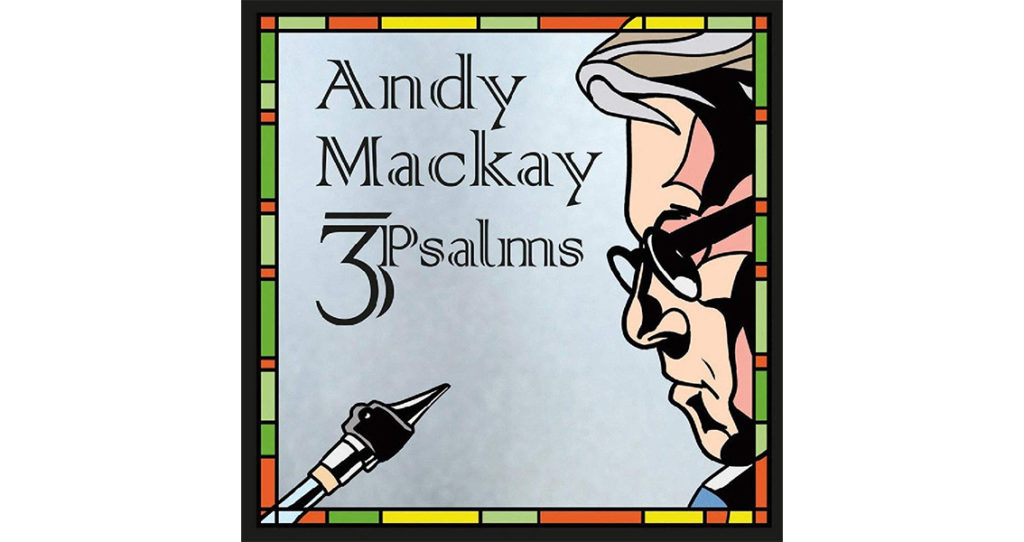
SC: Why did you choose to create a piece of work based on the Psalms?
AM: You can’t go on writing love songs forever, sometimes you have to think a little bit more about the human condition.
Around the time of the AIDS crisis a couple of my friends got ill and I noticed people were worried and scared and sort of looking for a place to go. I knew a couple of people who found it much easier to relate to a psalm than they did to a Christian gospel. Saying God loves you just doesn’t relate to everyone. The psalms reflect a human condition, we’re young, we get old we die. There is a context to it.
SC: For those of us less knowledgeable of religious texts, what are the psalms?
AM: The book of psalms is one of the Old Testament books. There are 150 psalms, they are numbered slightly differently but are pretty much the same in Jewish worship. Originally they were all supposed to have been written by King David but its now understood they were written by all sorts of people over about a 500 year period and collected together as a collection of poems about 3 or 4 hundred BC. There was a monastic thing of singing all the psalms in a month and they would do three at a time.
Growing up as a chorister as a boy in a Church of England school you sang a lot of psalms. They are used in hymns, the Lord is my Shepherdis a psalm. I think the psalms are a bit like Shakespeare, people know phrase but possibly don’t know where they come from.
SC: Have you kept to the original text of the 3 psalms you chose
AM: I haven’t edited the psalms. Out of the deep, the first psalm is half in Hebrew half in English which was really just because the Hebrew sounded nice. Lord thou hast been our refuge, is in the old English from the 17th century prayer book. I tried the modern translation but it didn’t sound right. It’s a very difficult language to understand but I was more concerned with it being a musical thing. The message is not the primary issue, the primary thing for me is the music.
SC: Did you intend to give any message in the piece?
AM: No, no. The psalms cover different things. Some are very warlike and aggressive, some are very meditative. I just thought there is something more neutral about the psalms as a kind of religious statement.
I would say is there are no simple answers. If religion becomes one of the things people discuss I’d be very happy but I’m not going to tell them what to think, it’s for them to find out.
SC: When did you start playing Saxophone?
AM: I actually started with the oboe. I wanted to play the clarinet because when I was about 10, Aker Bilk, Strangers on the Shorewas a big hit. I asked at school to play the clarinet and they said we haven’t got any clarinets but we’ve got an oboe, you can play that.
SC: What was it like to be a wind musician when everyone was experimenting with rock and electronic music?
AM: Well, I was into both. I bought a synthesizer, an EMS VCS 3 in 1971 which I still have, I can show you if you like?
At this point our conversation is immediately interrupted as Lee, Andy Barnham taking photographs and myself file excitedly after Andy into the next room to stand in awe around this extraordinary piece of music history. One of the dials is aptly labeled, ‘Noise Generator’!
Shortly after Bryan Ferry, Graham Simpson and Andy started Roxy Music, Andy jumped on a tube and bumped into his old university friend, Brian Eno. As Andy was playing his saxophone the band needed someone to operate the synthesizer and he asked Brian to join. Brian also had a tape machine, which he used to play back recordings through the songs. This all accumulated to give Roxy Music their unique, ground breaking sound and perhaps, without that chance meeting on a tube, Brian Eno wouldn’t have become the omnipotent musical presence he is today.
SC: Do you look back fondly on those times?
AM: Oh yes. I love performing and I actually preferred playing arenas to small theatres.
SC: How did the Psalms project get started?
AM: In the mid 80’s I had some spare time, I had young children, I was quite happy. I had been living in Ireland for a bit and I was back living in London and decided to go back to University and do a theology degree at Kings College, London.
After that I was working on music for film and television [Andy was a prolific music writer for tv programs including the ITV drama Rock Follies. The soundtrack was a hugely successful number 1 album]. I’d never wanted a home studio that needed an engineer, but it was just when software for writing music had come in. I was quite keen on computers then so I set up a little studio at home.
1993/94, I was trying to think of what to do with samples, bits of tape and all sorts of bits and pieces and looking for a subject and strayed into doing some psalms. I can’t remember exactly why.
My first wife had died pretty suddenly so I as pretty busy as a single parent and for a few years and wanted something I could work on around that. I wouldn’t say I was particularly religious at that time. I’ve always had an interest and by then I was a regular churchgoer in a sort of church of England’y sort of way, which I still am. I don’t go around preaching to people I just consider myself an ordinary Church of England person. And the psalms seemed like a good idea.
SC: What was it like working on the early computer studio systems?
AM: At first the psalms piece was going to be electronic and experimental, a bit Stockhausen. Initially it was very very hard to record audio on early computers because we had a hard drive that was only 1 gigabyte. We could just about record 5 minutes but the latency and syncing was very difficult, and it was always going wrong. But as it got easier I started doing more live recording using digital audiotape in a system with multi track tape, like a VHS tape but for audio. A lot of studios used them at the time, it was the first way people started going straight to digital.
SC: Why has the 3 Psalms taken so long to complete, what else has been keeping you busy?
AM: During the 80’s I did a project with Phil Manzanera called the Explorers and I think some really great stuff came out of it. The videos were really quite funny, very 80s!
Then I moved to the country at the end of the 1990s. I set up another little studio and aimed to get the Psalms done by 2000 and finished the demos by then, which was more or less the composition and shape that we have now.
Then finally in 2001 we got back to Roxy Music and went out on our 50 date world tour. So everything got shelved really. One tour led to another, several others things were cropping up, my child was growing into a toddler and although I was only in my 50’s you begin to think you are getting old then. Its later you realize that 50 is nothing. 60 is lurking and 60 is the age I think most men and women are scared of. Looking back now 50 is ok, 40 forget it, 60 is when you get your pension!
I was trying to keep moderately busy but also enjoy having children and life. We started a Roxy album that was eventually unfinished. We did two weeks in the studio with everyone. Paul, Me, Bryan, Phil, Eno, Guy Pratt on bass and with our same producer Chris Thomas and Rhett Davies. We tried to recreate how we used to do it. We laid down a couple of tracks and it all sounded pretty good then Bryan [Ferry] had some songs, because he always a has a bunch of songs he’s working on and hasn’t quite finished and we lost Roxy direction.
Around 2000 I did some demos for the instrumental group, The Metaphors which became an album. It featured Hazel Mills who is now with Florence and the Machine. We did 6 shows with the intention to continue playing small, 500 seat venues but the costs became too much. For starters we had a harpist and carrying around a harp isn’t that easy. Band members were spread out all over the country so it just became too expensive to organize. A record deal fell through so I just said we’ll put it out ourselves which we did.
SC: We heard you were ill recently and hope you are recovering well?
AM: I had an operation for throat cancer last year so I was out of action for a while, but hopefully it has all been successful. There was some worry that I wasn’t going to be able to play afterwards. Physically I was quite weak, I’d had pneumonia so I had to get my lungs back working well and my face muscles were weak too so it took a while to get back into shape.
I actually played in the hospital, at first my surgeons wanted to see if I could, then they got quite excited and thought it would be good therapy.
SC: Have you got any other projects like the 3 Psalms hidden away?
AM: No, this is it.
SC: What is next for you now?
AM: If I could play and make it work, it would be nice to carry on for a year or two!
Share article with:
Articles which may also be of interest
© By The Sky Design 2021


